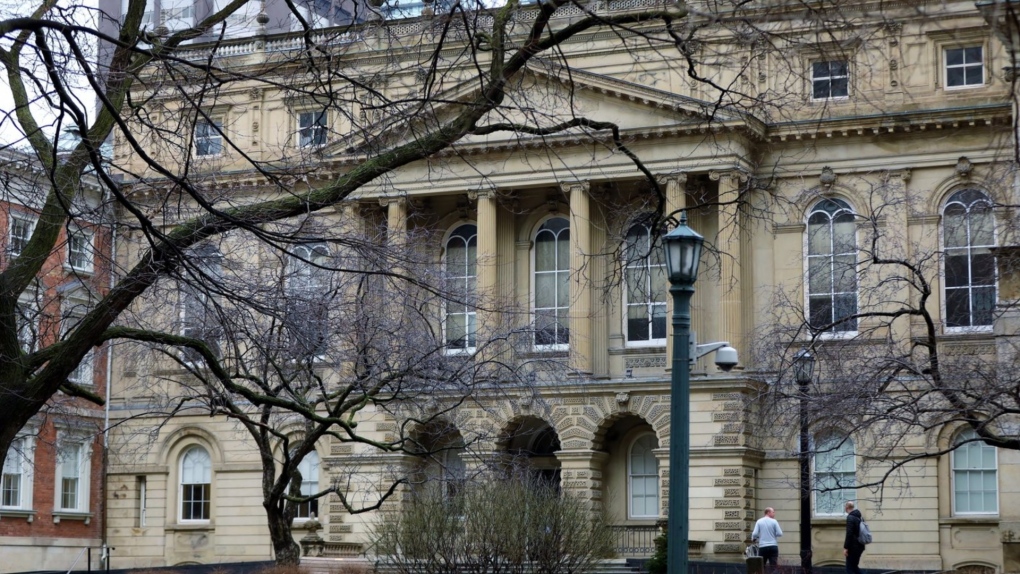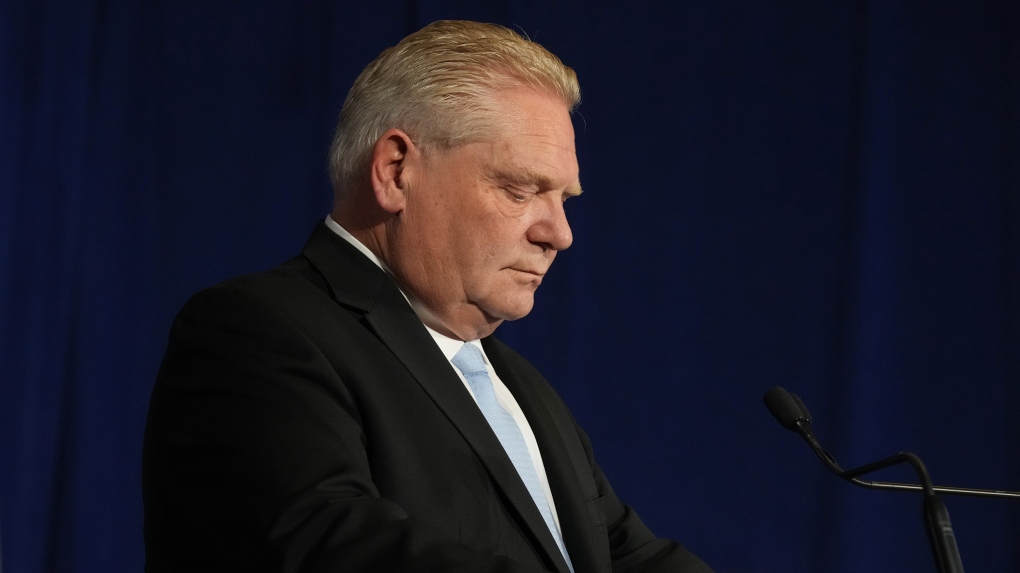Here's what you need to know about Doug Ford's Bill 124
The Ontario government has said it will repeal Bill 124, a law that capped wage increases for public sector workers for three years, after a provincial court upheld a ruling that found it was unconstitutional.
Here’s a look at how we got here:
What is Bill 124?
The Protecting a Sustainable Public Sector for Future Generations Act received royal assent on Nov. 7, 2019. The goal of the bill was to cap public sector wages in an effort to help eliminate the deficit.
- Download our app to get local alerts on your device
- Get the latest local updates right to your inbox
Officials argued the legislation was meant to be “exceptional and time-limited.”
Who did this impact?
Bill 124 impacted all public sector workers, such as teachers, nurses, and other civil employees.
When did it go to court?
The legislation received a lot of criticism, especially from unions representing public sector workers.
Ten applicants took the case to court, arguing the bill violated a section of the Canadian Charter of Rights and Freedoms that protects meaningful collective bargaining. The province argued the Charter doesn’t guarantee “unlimited annual raises for public sector workers.”
What happened?
In November 2022, Justice Markus Koehnen released an 80-page decision arguing that Bill 124 infringes on the applicants’ rights to freedom of association and collective bargaining.
“The Charter protects not just the right to associate, but also the right to a meaningful process in which unions can put on the table those issues that are of concern to workers and have them discussed in good faith,” Koehnen wrote.
The government immediately said it would be appealing the decision in court, arguing that it “erred in holding that the financial impact of the Act’s limits on the compensation increases substantially interferes with the respondent’s rights to a meaningful process of collective bargaining.”
What happened with the appeal?
On Monday, the Court of Appeal for Ontario ruled in favour of the workers, finding that it did violate the collective bargaining rights of public sector workers.
 Ontario's top court is set to rule today on the constitutionality of a law that limited raises for more than one million workers in the broader public sector, including nurses and teachers. The Ontario Court of Appeal is seen in Toronto on April 8, 2019. THE CANADIAN PRESS/Colin Perkel
Ontario's top court is set to rule today on the constitutionality of a law that limited raises for more than one million workers in the broader public sector, including nurses and teachers. The Ontario Court of Appeal is seen in Toronto on April 8, 2019. THE CANADIAN PRESS/Colin Perkel
"Because of the Act, organized public sector workers, many of whom are women, racialized and/or low-income earners, have lost the ability to negotiate for better compensation or even better work conditions that do not have a monetary value," the court wrote in its decision.
The court said that while the governments can try to hold compensation increases at a certain issue, they cannot override the collective bargaining process.
The court did, however, say the act is only unconstitutional for workers represented by unions.
What’s next?
The Ford government said late Monday night it will not pursue another court appeal. The government said it will take steps to repeal Bill 124 in the coming weeks. It also said it would introduce regulations to exempt non-unionized and non-associated workers from Bill 124 until it is repealed “to solve for the inequality of workers.”
 Ontario Premier Doug Ford and Toronto Mayor Olivia Chownot shown, hold a news conference in Toronto on Monday Nov. 27, 2023. THE CANADIAN PRESS/Chris Young
Ontario Premier Doug Ford and Toronto Mayor Olivia Chownot shown, hold a news conference in Toronto on Monday Nov. 27, 2023. THE CANADIAN PRESS/Chris Young
While the case was being heard in court, the government had slowly been paying remedies to these workers, which included nurses and teachers, to make up for lost wages.
How much did this cost?
Premier Doug Ford told reporters the government has “spent billions” on Bill 124. While the Progressive Conservatives have not put a dollar figure to the legislation, a report by the Financial Accountability Office of Ontario suggests the cost between 2022 and 2028 will total about $13.7 billion.
“The FAO’s current spending forecast now assumes that all union and non-union public sector employees that were subjected to Bill 124 will receive wage increases to adjust for the impact of the legislation,” the report says.
“The Province has also recorded a $2.5 billion contingent liability in the 2022-23 Public Accounts of Ontario to recognize the potential impact of retroactive payments.”
In 2022, the FAO predicted the government would need to pay around $8 billion if the court challenge was successful.
CTVNews.ca Top Stories

Donald Trump says he urged Wayne Gretzky to run for prime minister in Christmas visit
U.S. president-elect Donald Trump says he told Canadian hockey legend Wayne Gretzky he should run for prime minister during a Christmas visit but adds that the athlete declined interest in politics.
Historical mysteries solved by science in 2024
This year, scientists were able to pull back the curtain on mysteries surrounding figures across history, both known and unknown, to reveal more about their unique stories.
King Charles III focuses Christmas message on healthcare workers in year marked by royal illnesses
King Charles III used his annual Christmas message Wednesday to hail the selflessness of those who have cared for him and the Princess of Wales this year, after both were diagnosed with cancer.
Mother-daughter duo pursuing university dreams at the same time
For one University of Windsor student, what is typically a chance to gain independence from her parents has become a chance to spend more time with her biggest cheerleader — her mom.
Thousands without power on Christmas as winds, rain continue in B.C. coastal areas
Thousands of people in British Columbia are without power on Christmas Day as ongoing rainfall and strong winds collapse power lines, disrupt travel and toss around holiday decorations.
Ho! Ho! HOLY that's cold! Montreal boogie boarder in Santa suit hits St. Lawrence waters
Montreal body surfer Carlos Hebert-Plante boogie boards all year round, and donned a Santa Claus suit to hit the water on Christmas Day in -14 degree Celsius weather.
Canadian activist accuses Hong Kong of meddling, but is proud of reward for arrest
A Vancouver-based activist is accusing Hong Kong authorities of meddling in Canada’s internal affairs after police in the Chinese territory issued a warrant for his arrest.
New York taxi driver hits 6 pedestrians, 3 taken to hospital, police say
A taxicab hit six pedestrians in midtown Manhattan on Wednesday, police said, with three people — including a 9-year-old boy — transported to hospitals for their injuries.
Azerbaijani airliner crashes in Kazakhstan, killing 38 with 29 survivors, officials say
An Azerbaijani airliner with 67 people onboard crashed Wednesday near the Kazakhstani city of Aktau, killing 38 people and leaving 29 survivors, a Kazakh official said.

































